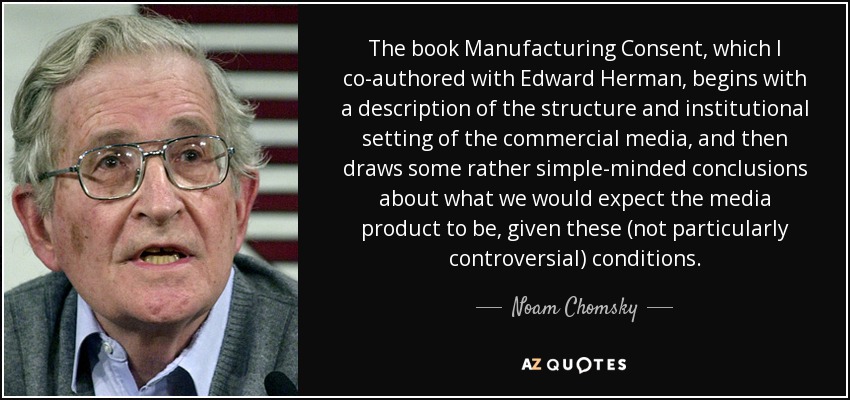In recent years, ‘manufacturing consent’ has become popular in media and cultural studies. Edward S. Herman and Noam Chomsky coined this phrase in their 1988 book Manufacturing Consent: The Political Economy of the Mass Media to describe how media outlets shape public opinion through biased news coverage and manipulation techniques such as agenda setting, framing, priming, etc. In short, it is about controlling people’s thoughts by influencing their beliefs through carefully crafted messages disseminated via mass media channels.

The internet age has seen an explosion of new communication technology forms, drastically changing how we consume information today compared to previous generations. However, despite these changes, there is evidence that manufacturing consent exists within our contemporary digital landscape – from targeted political ads on social networks to algorithmic curation on streaming services like Netflix or YouTube.
At its core, manufacturing consent is an attempt at controlling people’s beliefs by manipulating their emotions rather than providing factual evidence or logical arguments that support one side of an issue over another. This type of manipulation can take many forms, including creating false narratives through news stories or using celebrities as spokespeople for particular causes/products/ideologies, all designed to sway public opinion towards a desired outcome without being transparent about its intentions. For example, The tobacco industry has used celebrity endorsements throughout history in order to make smoking seem cool despite knowing full well that cigarettes are dangerous products with serious health risks associated with them – this kind of marketing strategy falls under the umbrella term “manufacturing consent”.
In today’s world, where information travels faster than ever, mainly due to social media platforms like Twitter and Facebook, it is important now more than ever for us all to be aware when we are being manipulated into believing something simply because someone else wants us to. We should question our sources critically and seek out multiple perspectives on any given topic so we do not fall victim to the deceptive tactics employed by those who wish to maintain power and influence within society.




Very well structured article with very representative examples. For example, political ads on Netflix and YouTube mentioned in this article, and social platforms such as Facebook, the speed of information transmission is not what it used to be. Point again at the end to remind the reader of his main points.
HelloпЉМ
This blog is a well done blog that not only explores what consensus making is on a broad theoretical basis, but also gives us a sidebar on the manipulation that social media has on us. However, it would have been better if it could have made a connection with our real life and given examples that are more relevant to our lives.